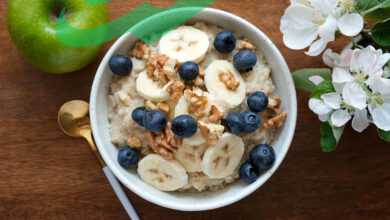Why Oatmeal Milk is the Healthy Choice You Need
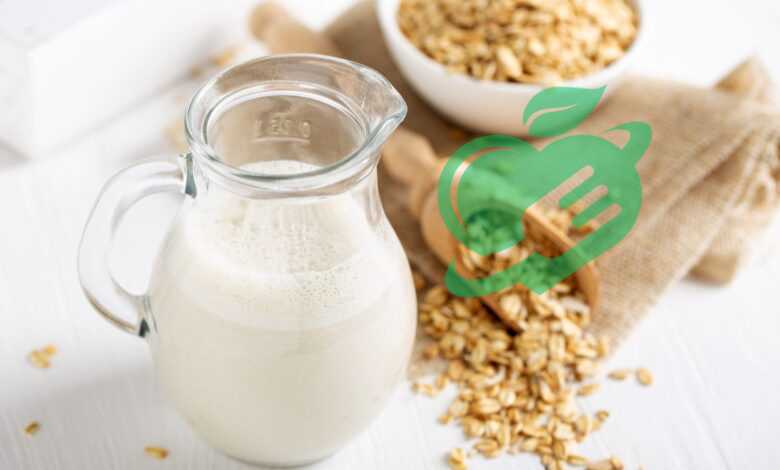
The Nutritional Benefits of Oatmeal Milk
Oatmeal milk has rapidly gained popularity as a nutritious alternative to traditional dairy milk. Offering a wide range of health benefits, it’s not just a creamy beverage that complements your morning routine, but a source of essential nutrients that can enhance your overall diet. Let’s delve into the nutritional highlights that make milk a fantastic choice for many.
Rich in Essential Nutrients
One of the standout features of its is its rich composition of essential nutrients. Oats serve as the primary ingredient, and they bring along a treasure trove of vitamins and minerals:
- Vitamins: she contains B vitamins, crucial for energy production and maintaining a healthy metabolism.
- Minerals: Important minerals like calcium, potassium, and magnesium are present, contributing to bone health and regulating blood pressure.
For example, when I switched to milk, I noticed an improvement in my overall energy levels. The nutrient density provided by milk empowered my morning routines, fueling me for busier days. Each glass not only quenches thirst but nourishes the body.
High in Fiber Content
Another significant advantage of oatmeal milk is its impressive fiber content. Fiber is essential for maintaining digestive health, and oatmeal milk delivers this benefit without the heaviness that often comes from dairy products.
- Digestive Health: Fiber encourages regular bowel movements and can help prevent constipation.
- Satiety: Consuming fiber-rich foods can help you feel fuller longer, which can aid in weight management.
Notably, 1 cup of milk typically contains about 1 to 2 grams of fiber. This might not seem like much, but when incorporated into the diet alongside other fiber sources, it can contribute significantly to daily fiber intake.
- To illustrate, here’s a quick comparison of fiber content in common plant-based milk options:
- Oat Milk: 1-2 grams per cup
- Almond Milk: 0.5 grams per cup
- Soy Milk: 2 grams per cup
When I began cutting down on dairy, I initially struggled with feelings of hunger between meals. Switching to oatmeal milk not only added delightful creaminess to my smoothies but also provided enough fiber to keep me satisfied.
Lower in Calories Compared to Dairy Milk
For those watching their caloric intake, oatmeal milk is a favorable option. Typically, a cup of unsweetened oatmeal milk contains around 120 calories, while whole cow’s milk holds nearly 150 calories.
- Caloric Comparison:
- Oat Milk (Unsweetened): ~120 calories per cup
- Whole Cow’s Milk: ~150 calories per cup
- Skim Milk: ~80 calories per cup
This lower calorie content allows for greater flexibility in dietary choices, making it easier to enjoy various recipes without significantly increasing caloric intake. It is worth noting that the calorie count in this oatmeal can rise if sweeteners or flavors are added. Many brands present flavored options, which can enhance the taste but may also increase sugar content. In practice, replacing dairy milk with this oatmeal in recipes like smoothies, baked goods, or even sauces allows for maintaining balanced calorie counts while bolstering nutrient content. The transition has been seamless in my kitchen— milk works wonders in my pancake batter, delivering a deliciously fluffy texture without a caloric overload. In summary, the nutritional benefits of this oatmeal are substantial. Packed with essential nutrients, high fiber content, and lower calorie counts compared to traditional dairy milk, this oatmeal serves as an excellent choice for those seeking a healthy alternative. Whether you are lactose intolerant, vegan, or simply looking to diversify your milk alternatives, incorporating this oatmeal into your daily routine can bring noticeable benefits to your health and well-being.
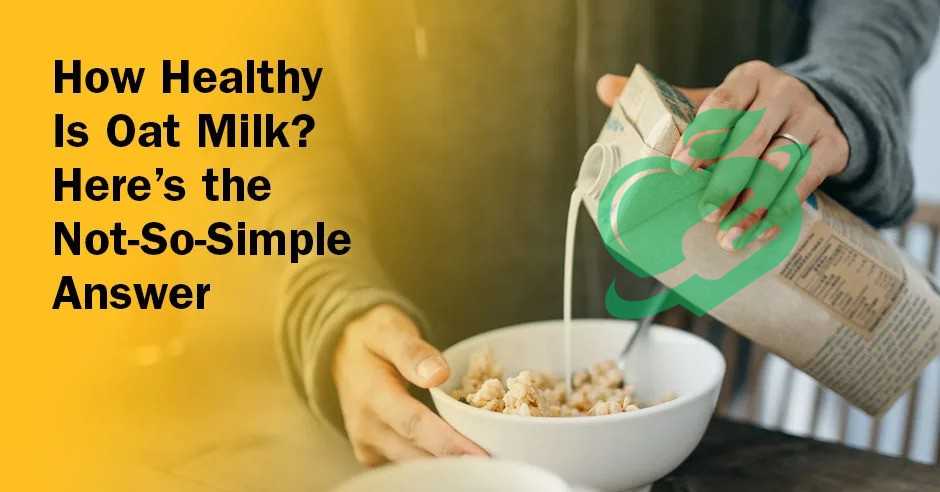
Oatmeal Milk as a Dairy Milk Alternative
Having explored the nutritional benefits of oatmeal milk, it becomes clear that this creamy beverage is not only a delightful addition to various recipes but also serves as an excellent alternative to traditional dairy milk. Let’s dive deeper into why oatmeal milk has carved out a niche for itself among dairy alternatives, particularly for those with dietary restrictions.
Lactose-Free Option for the Lactose Intolerant
For millions of people around the world, lactose intolerance is a daily hurdle. Lactose, the sugar found in dairy, can lead to uncomfortable symptoms like bloating and digestive issues, making it challenging to enjoy traditional milk products. Oatmeal milk offers a relief-filled alternative.
- No Lactose: Made from oats and water, oatmeal milk is naturally lactose-free, which means those who experience intolerance can enjoy it without fear of discomfort.
- Versatility: Oatmeal milk can be seamlessly integrated into everyday foods, from cereals to coffees, ensuring those with lactose intolerance don’t have to miss out on their favorite meals.
For instance, when a close friend discovered her lactose intolerance, I recommended oatmeal milk. She has since embraced it not only for drinking but also for enriching her morning oatmeal—a winning combo!
Suitable for Vegans and Vegetarians
In a world increasingly focused on plant-based diets, oatmeal milk naturally finds its place as a satisfying option for both vegans and vegetarians. With its rich flavor and appealing texture, it serves as a perfect substitute for individuals seeking to eliminate all animal products.
- Plant-Based Goodness: Oatmeal milk is made from whole grains and legumes, aligning perfectly with vegan dietary principles.
- Variety of Uses: From smoothies to creamy pasta sauces, oatmeal milk’s versatility makes it a go-to for those adhering to plant-based lifestyles.
I’ve often joined vegan friends for brunch gatherings where this oatmeal takes center stage. Whether it’s blending into a creamy tofu scramble or adding dimension to a fruit smoothie, it caters not just to vegans but to everyone who values wholesome ingredients.
Potential Health Benefits Over Dairy Milk
When considering health benefits, this oatmeal stands strong against traditional dairy milk. It’s not just about preference or dietary restrictions; the potential health advantages can also be compelling.
- Lower Sugar Levels: Many brands of this oatmeal offer unsweetened options, helping to reduce overall sugar consumption compared to flavored dairy milk, which can contribute to unwanted calories.
- Heart-healthy fats: This oatmeal typically contains less saturated fat than cow’s milk, which meets heart-health recommendations.
- Better Digestive Health: As previously mentioned, the fiber content of oatmeal milk can promote digestive health and comfort.
A personal story illustrates this well. Following my goal to adopt a healthier lifestyle, I began replacing dairy with oatmeal milk. As a result, I experienced more stable energy levels throughout the day, likely attributed to the reduced sugar and healthier fat content. To visualize the advantages, here’s a quick breakdown comparing oatmeal milk to whole cow’s milk:
| Nutrient | Oat Milk (Unsweetened) | Whole Cow Milk |
|---|---|---|
| Calories | ~120 | ~150 |
| Sugars | 0-2 g | 11 g |
| Saturated fats | 0.5 g | 4.5 g |
| Calcium | 30% DV (varies by brand) | 28% DV |
| Fiber | 1-2 g | 0 g |
This table summarizes not only the calorie and sugar counts but also showcases the benefits of fiber intake, illustrating why oatmeal milk is a thoughtful choice for health-conscious individuals. With its appeal to lactose-intolerant individuals, vegans, and health enthusiasts alike, this oatmeal proves to be more than just an alternative to dairy; it is a celebration of what plant-based nutrition can offer. Transitioning to this oatmeal has positively impacted not only my diet but also my overall approach to food, emphasizing health without sacrificing taste. Ultimately, this oatmeal can serve as an enticing solution, adapting to your lifestyle while delivering a bounty of benefits.
Read also: How Many Calories Do You Burn When You Walk?
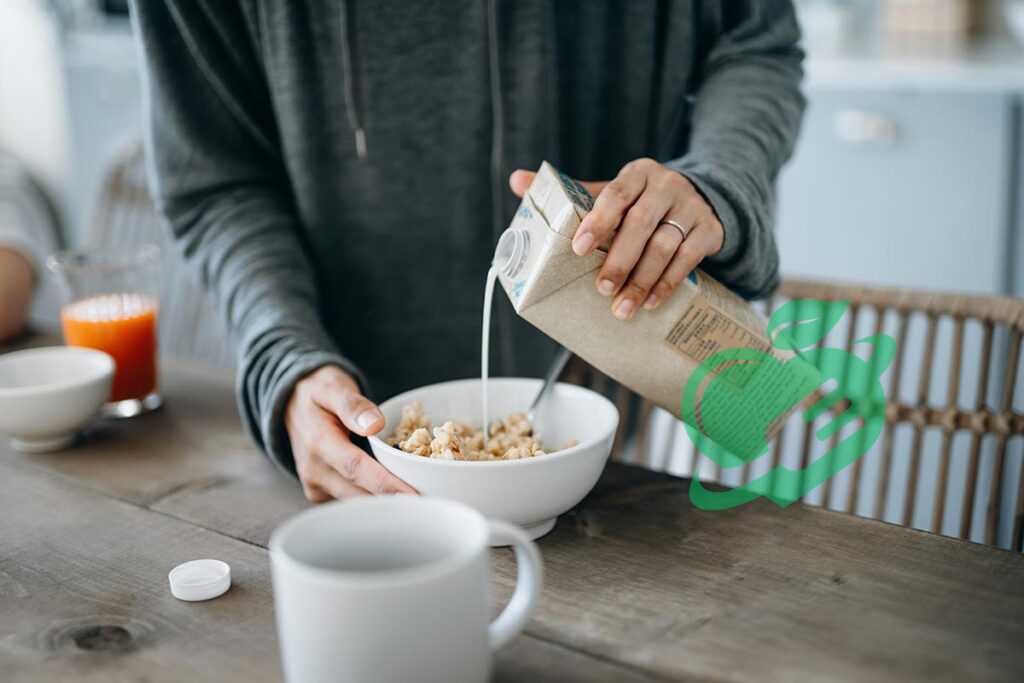
How to Incorporate Oatmeal Milk into Your Diet
Having recognized the numerous benefits of oatmeal milk as a dairy alternative, the next step is to explore how to seamlessly incorporate this versatile ingredient into your daily meals and This oatmeal isn’t just a standalone drink; it can enhance a variety of recipes. Here are some creative ways to integrate this oatmeal into your diet.
Oatmeal Milk in Smoothies and Shakes
Smoothies and shakes are a fantastic canvas for oatmeal with milk, allowing you to create delicious, nutritious beverages that fuel your day. The creamy texture of oatmeal with milk blends perfectly with fruits, greens, and other add-ins.
- Base of Choice: Use oatmeal milk as a base instead of water or dairy. It adds creaminess while keeping calories in check.
Here’s a delightful recipe for an Oatmeal Banana Smoothie:
- Ingredients:
- 1 cup oatmeal milk
- 1 medium banana
- 1 tablespoon nut butter (peanut or almond)
- 1 tablespoon chia seeds
- A dash of cinnamon
- Instructions:
- Blend all ingredients until smooth.
- Pour into a glass and enjoy a nutrient-packed breakfast or snack!
Incorporating oatmeal with milk into smoothies not only amps up their flavor but also adds fiber, helping you feel full and satisfied. My favorite post-workout ritual includes blending a creamy oatmeal with the milkshake that hits the spot and aids recovery.
Oatmeal Milk in Baking Recipes
Baking with oatmeal milk recipe can result in delightful treats that are moist, flavorful, and plant-based. Whether you’re whipping up muffins, pancakes, or cakes, oatmeal with milk is an effective substitute for dairy milk.
Read also: Redefining Sweetness: The Transformative Health Benefits of Molasse.s
- One-to-One Swap: In most recipes, you can directly replace dairy milk with oatmeal milk in equal quantities.
Here’s a quick recipe for these oatmeal Pancakes:
- Ingredients:
- 1 cup flour (whole wheat or all-purpose)
- 1 tablespoon sugar (optional)
- 1 tablespoon baking powder
- 1 cup oatmeal milk
- 1 tablespoon vegetable oil
- Instructions:
- In a bowl, mix flour, sugar, and baking powder.
- Add oatmeal milk and vegetable oil; stir until combined.
- Cook on a heated skillet until bubbles form, then flip.
These pancakes pack a nutritious punch while avoiding the heaviness often associated with traditional pancakes. I recently made a batch for a family breakfast and watched as my kids gobbled them up, oblivious to the healthy twist I’d added to the oatmeal milk recipe!
Oatmeal Milk in Coffee and Tea
For those who enjoy warm beverages, this oatmeal is an excellent addition to coffee and tea. Its creamy consistency and slight sweetness can enhance your morning cup or afternoon tea ritual.
- Creamy Coffee: Swap dairy or cream in your coffee with oatmeal milk, creating a rich, velvety texture.
- Tea Time Treat: Steep your favorite tea and add a splash of oatmeal milk for a luxurious touch.
Consider this easy oatmeal Latte:
- Ingredients:
- 1 cup brewed coffee
- 1/2 cup oatmeal milk
- Sweetener (optional)
- Instructions:
- Brew your coffee.
- Heat oatmeal milk (do not boil) and froth if desired.
- Combine and sweeten to taste.
During the chilly months, I find myself curling up with a warm mug of oatmeal milk latte. It’s soothing, invigorating, and feels like a hug in a cup. To summarize, incorporating oatmeal milk into your diet is not only simple but can enhance the taste and nutrition of your meals. It’s an excellent base for smoothies, a key ingredient in baking, and a delightful addition to hot drinks. By embracing this versatile milk alternative, you’re adding a layer of health and flavor that everyone will enjoy, whether you’re vegan, lactose intolerant, or simply looking for new ways to enrich your diet. Try these ideas, and let this oatmeal surprise you with its versatility and deliciousness!
Read also: 10 Surprising Benefits of Buttermilk.k
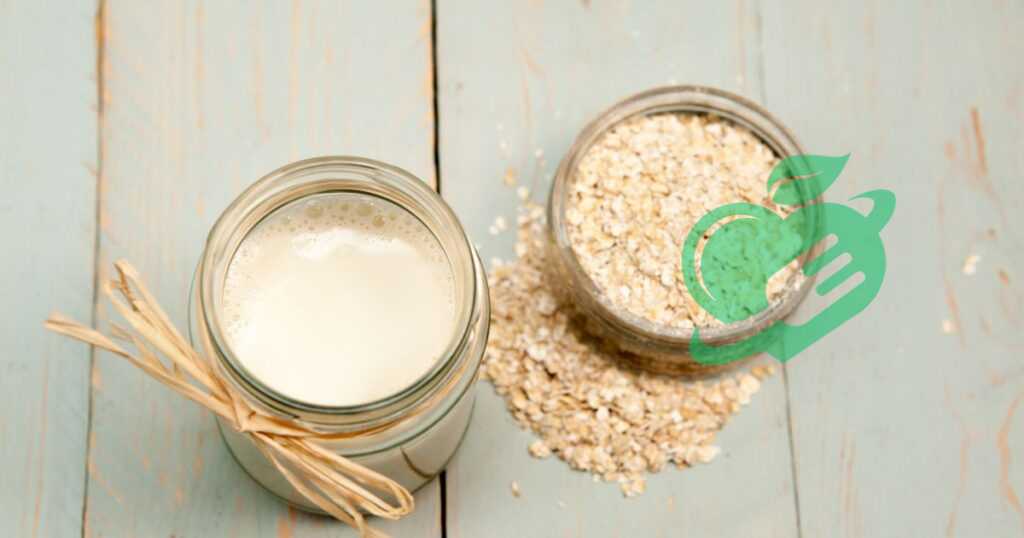
Potential Risks and Considerations
While oatmeal milk shines bright with its nutritional benefits and versatility, it’s essential to also consider some potential risks and factors that may impact your decision to include it in your diet. Understanding these nuances can help you make informed choices. Let’s explore some key considerations.
Allergic Reactions to Oats
While oats are generally safe for most individuals, some may experience allergic reactions. Oat allergies, though rare, can lead to symptoms such as:
- Skin Reactions: Hives, rashes, or itchiness.
- Digestive Issues: Nausea, vomiting, or in some cases, more severe gastrointestinal distress.
- Respiratory Problems: If an oat allergy is significant, it may cause respiratory reactions, including asthma-like symptoms.
For those living with celiac disease or gluten intolerance, it’s particularly crucial to note that many oats can be contaminated with gluten during processing. Therefore, individuals must choose certified gluten-free oats when opting for oatmeal milk. A friend of mine faced an unexpected reaction when she first introduced this oatmeal into her smoothies, thinking it would be a safe alternative. After some research, we discovered her sensitivity to oats. This experience serves as a reminder to stay attentive to how your body reacts to new foods.
Added Sugars in Commercial Oatmeal Milk
Another factor to consider is the presence of added sugars in many commercial oatmeal milk brands. While oatmeal itself is low in sugar, some manufacturers add sweeteners to enhance the flavor, turning what could be a healthy option into a sugar-laden drink.
- Watch for Labels: Always check the ingredient list and nutrition facts panel.
- Choose Wisely: Unsweetened or lightly sweetened varieties are preferable.
For example, here’s a quick comparison of different oatmeal milk products:
| Brand | Sugar (per cup) | Sweetener Used |
|---|---|---|
| Brand A (Unsweetened) | 0 g | None |
| Brand B (Sweetened) | 7 g | Cane sugar |
| Brand C (Flavored) | 10 g | Honey |
Switching from flavored dairy milk to oatmeal milk can lead to unintended increases in sugar intake if not carefully chosen. When I made the switch, I initially chose a sweetened variety, thinking it would be more enjoyable in my coffee. It wasn’t until I reviewed my sugar intake that I realized the impact. Switching to an unsweetened version significantly improved my overall diet.
Read also:Ghee Is Dairy Free – A Healthy Alternative Explained
Impact on Blood Sugar Levels
While the oatmeal milk recipe has several beneficial qualities, it’s vital to consider how it can affect blood sugar levels, especially for individuals managing diabetes or insulin resistance. Oats have a relatively low glycemic index, but not all oatmeal products are created equal.
- Glycemic Response: Although the ugh oatmeal milk recipe itself tends to have a lower glycemic response, commercial varieties often vary based on added sugars and other ingredients.
- Carbohydrate Content: A standard serving of this oatmeal recipe can contain approximately 15-20 grams of carbohydrates.
This means that when integrating oatmeal milk into a diet, individuals need to balance their overall carbohydrate intake to manage blood sugar levels effectively. I learned this lesson firsthand when I added oatmeal milk to my breakfast routine. Initially, I didn’t measure my overall carbohydrate intake, and I noticed fluctuations in how I felt throughout the morning. It prompted me to track my meals better, ensuring that my oatmeal recipe intake aligned with my dietary goals. In conclusion, while this oatmeal recipe offers an excellent alternative to dairy, it’s important to be aware of the potential risks and considerations. From allergic reactions to added sugars and impacts on blood sugar levels, understanding these aspects can empower you to make informed choices. Always listen to your body and consult with a healthcare professional when needed, especially if you have specific dietary restrictions or health conditions. With awareness, you can enjoy all the benefits that an oatmeal milk recipe has to offer while navigating its potential pitfalls smoothly.
Read also: Easy and Tasty Coconut Milk Recipes for Every Occasion. on
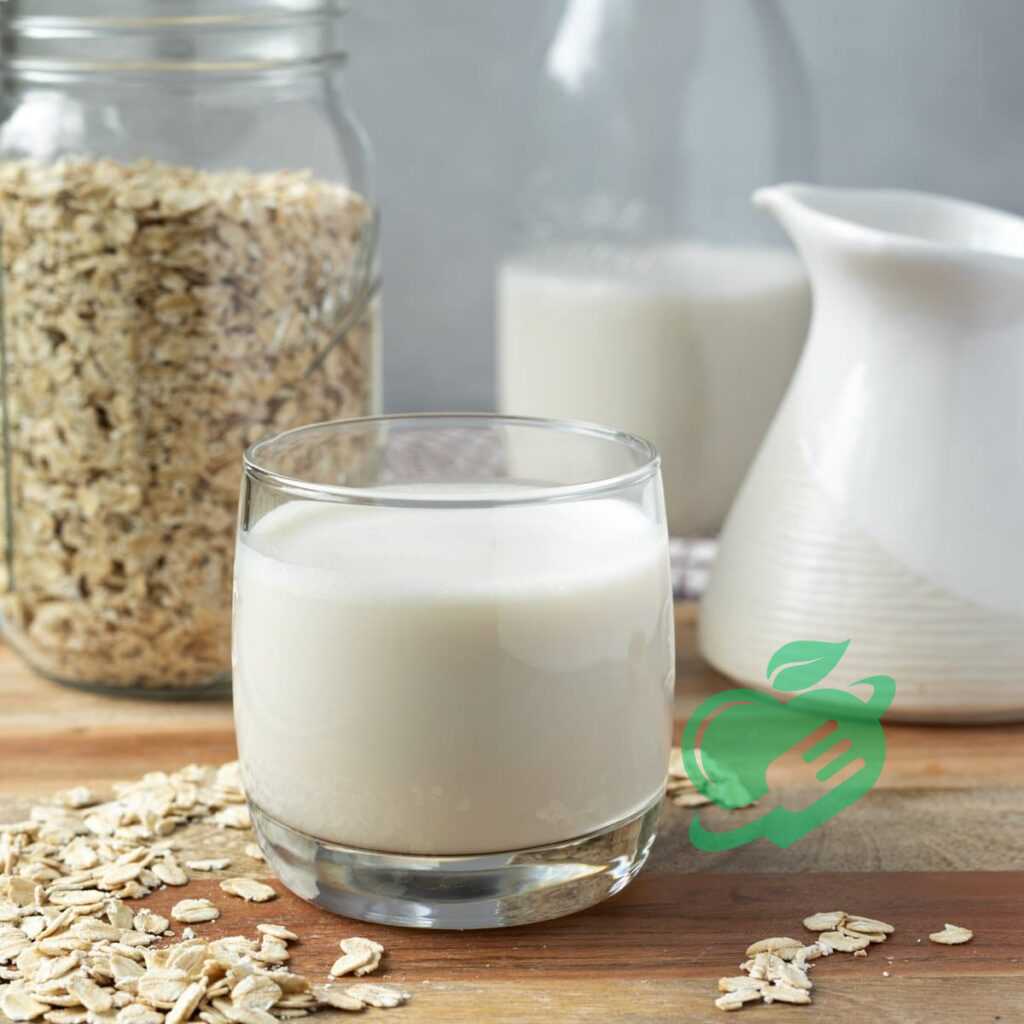
Making Oatmeal Milk at Home
Having examined the potential risks and considerations of oatmeal milk making this nutritious beverage at home can be a rewarding and straightforward process. Not only does homemade oatmeal milk allow for better control over ingredients, but it can also be a fun culinary project. Let’s explore how to make oatmeal milk at home, along with some delightful variations and essential storage tips.
Simple DIY Oatmeal Milk Recipe
Creating your oatmeal milk at home is quick and easy, requiring just a handful of ingredients. You’ll need:
- Ingredients:
- 1 cup rolled oats (preferably gluten-free, if needed)
- 4 cups water
- A pinch of salt (optional)
- Sweetener (optional, e.g., maple syrup, honey, or dates)
- Vanilla extract (optional, for flavor)
- Instructions:
- Blend: In a blender, combine the rolled oats, water, and any optional ingredients like salt, sweetener, or vanilla. Blend on high for about 30 seconds until the mixture is smooth.
- Strain: Using a nut milk bag, fine mesh strainer, or a clean dish towel, strain the blended mixture into a bowl or pitcher. Squeeze gently to extract as much liquid as possible, discarding the oat pulp. (Tip: Save the pulp for baking or adding to smoothies!)
- Store: Pour the strained oatmeal milk into an airtight container and refrigerate.
This process, which takes under 10 minutes, yields approximately 4 cups of creamy oatmeal milk. The first time I made it, I was surprised at how fresh and delightful it tasted compared to store-bought options. I enjoyed it in smoothies and over my morning granola, totally embracing the homemade flavor.
Variations and Flavor Additions
Once you’ve perfected the basic oatmeal milk recipe, it’s time to let your creativity flow! Here are some fun variations and flavor additions to mix things up:
- Cocoa Oatmeal Milk: Add 2 tablespoons of unsweetened cocoa powder for a chocolatey twist, perfect for chocolate lovers or as a decadent addition to smoothies.
- Nutty Oatmeal Milk: Add a handful of soaked almonds or cashews to the blender for an extra nutty flavor and creaminess.
- Spiced Oatmeal Milk: Sprinkle in cinnamon, nutmeg, or even pumpkin spice for a cozy seasonal flavor, especially in the fall.
- Berry Bliss Oatmeal Milk: Blend in a cup of fresh or frozen berries for a fruity infusion that’s excellent for smoothies.
For example, I recently experimented with making spiced oatmeal milk for my chai tea. The blend of warming spices added a delightful richness that elevated my afternoon routine. It became an instant favorite!
Storage and Shelf Life Tips
Homemade oatmeal milk is best enjoyed fresh, but proper storage can extend its shelf life. Here are some tips for keeping your oatmeal milk at its best:
- Refrigeration: Store your oatmeal milk in an airtight container in the refrigerator. It can typically last 4-5 days without going bad.
- Separation: It’s normal for the milk to separate over time. Shake or stir before using ing to recombine it.
- Avoid Heat: Do not freeze oatmeal milk, as the texture may change once thawed, leading to a grainy consistency.
- Use the Pulp: Don’t throw away the leftover oat pulp! Use it in baking recipes such as muffins or energy bars, or incorporate it into smoothies for added fiber and nutrition.
Frequently asked questions
What does oat milk do for your skin?
It fights free radicals, improves hydration, decreases inflammation, and provides soothing support. It includes beta-glucan, which creates a protective barrier on the skin to retain moisture and prevent dehydration, keeping your skin adequately hydrated all day long. 1
Can I drink oat milk everyday?
Consuming oat milk is generally safe for your health unless you are having it in excessive amounts, consuming a lot of carbohydrates already, or have diabetes. If a significant portion of your daily liquid intake consists of any type of milk, whether plant-based or not, it may not be the best choice. It’s important to consume it in moderation. 2
Is oat milk triggering acne?
Some people might discover that specific additives or stabilizers in store-bought oat milk can potentially cause skin reactions in individuals with sensitivities or allergies. 3
Which milk to avoid for acne?
Some people might discover that specific additives or stabilizers in store-bought oat milk can potentially cause skin reactions in individuals with sensitivities or allergies. 4

